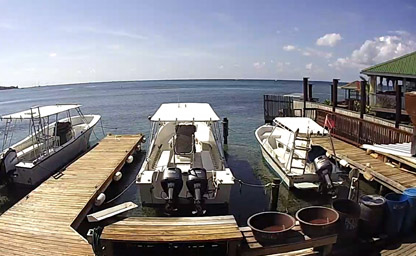
🔴 Bay Islands, Honduras
The best in boutique style scuba diving on Roatan

The best in boutique style scuba diving on Roatan
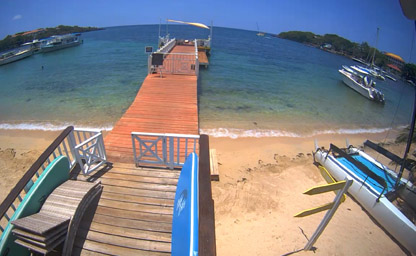
See what you are missing in Half Moon Bay
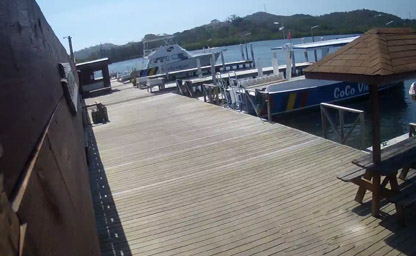
Major towns are Coxen Hole (Roatan City), French Harbour, and Oak Ridge, all on the islands many-harbored south shore
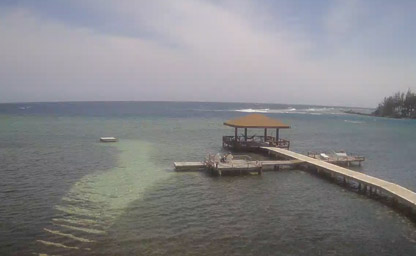
CoCo View is located on Roatan, the largest of the Honduras Bay Islands
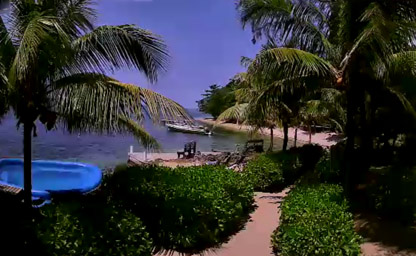
Roatan our cabins are located right on the beach
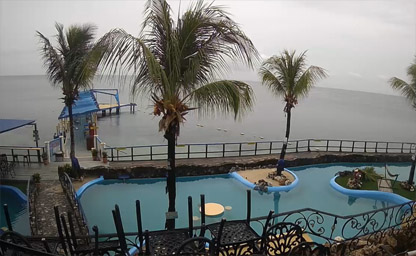
Situated between the islands of Guanaja and Utila
Nestled in Central America, Honduras invites virtual travelers on a captivating journey through a network of webcams that unveil the country's rich natural wonders and cultural tapestry. From dense rainforests to ancient ruins, each digital lens provides a real-time glimpse into the diverse landscapes that make Honduras a hidden gem in the region.
Embark on a visual odyssey as the cameras pan through Honduras' lush rainforests, showcasing the incredible biodiversity that thrives within. From vibrant flora to exotic wildlife, these webcams offer a front-row seat to the ecological richness that defines the heart of Honduras.
Explore the remnants of ancient civilizations as digital lenses capture the archaeological wonders of Honduras. Whether it's the Mayan ruins of Copán or the historical sites in Comayagua, these windows into the past provide a unique glimpse into the cultural heritage that shapes the narrative of Honduras.
Witness the allure of Honduras' Caribbean coastline as the cameras pan over sandy beaches and turquoise waters. From the Bay Islands to the vibrant Garifuna communities, these digital windows showcase the coastal charm that makes Honduras a haven for beach lovers and cultural enthusiasts alike.
Experience the vibrant culture of Honduras through glimpses of local markets, traditional dances, and festive celebrations. The webcams provide insights into the warm hospitality and colorful traditions that contribute to the dynamic cultural landscape of this Central American nation.
Uncover the scenic beauty of Honduras' mountainous landscapes as digital lenses capture the rolling hills and picturesque vistas. Whether it's hiking trails through Pico Bonito National Park or the serene beauty of Lake Yojoa, these webcams highlight the diverse topography that defines Honduras.
In a world where physical travel may be a challenge, let the digital lenses of Honduras' webcams be your virtual passport to a land of unparalleled natural beauty and cultural richness. Immerse yourself in the captivating charm of Honduras, and let these digital windows transport you to the heart of this Central American jewel.
Honduras has a history as rich and diverse as its landscapes, stretching from ancient Maya civilizations to Spanish colonial rule and the formation of a modern nation that continues to captivate travelers interested in Honduras history and culture. The roots of Honduras’ historical narrative run deep, with evidence of early human settlements found in archaeological sites throughout the country. The ancient Maya civilization flourished in what is now Honduras, leaving behind monumental ruins such as those at Copán, which remain one of the most significant archaeological sites in Central America. These ruins, with their intricately carved stelae and impressive pyramids, are a magnet for those searching for "Maya ruins in Honduras" and "Copán travel guide" online, making them a cornerstone of Honduras tourism and cultural heritage.
Before the arrival of the Spanish, the region was a mosaic of indigenous cultures, each with its own distinct traditions, languages, and social structures. Groups such as the Lenca and Pech peoples inhabited the rugged highlands and coastal areas, practicing agriculture, pottery, and artisanal crafts that have been passed down through generations. Their legacy is visible not only in the remnants of their ancient settlements but also in the vibrant traditions and festivals that continue to be celebrated in rural communities across Honduras. For travelers seeking an authentic glimpse into indigenous life, cultural tours and village visits offer a unique perspective on this enduring heritage.
The arrival of Spanish explorers in the early 16th century marked the beginning of a dramatic transformation in Honduras. Conquistadors, driven by the pursuit of gold and new territories, encountered the sophisticated Maya and other indigenous groups. The ensuing conflicts and the imposition of colonial rule reshaped the social and economic structures of the region. Spanish colonial influence is evident in the architecture of cities such as Tegucigalpa and Comayagüela, where centuries-old churches, government buildings, and plazas stand as testimonies to an era when Honduras was part of the vast Spanish Empire. Today, guided historical tours and heritage walks in these cities offer visitors an immersive experience into the colonial past, making them a must-see for those interested in Honduras travel history.
As the colonial period progressed, Honduras became a vital part of the Spanish trade routes, with its fertile lands and rich mineral resources contributing to the wealth of the empire. However, the exploitation and harsh treatment of indigenous populations during this era left a legacy of social and economic challenges that would echo through the centuries. Despite these hardships, the resilience of the Honduran people shone through, paving the way for a gradual shift toward independence in the early 19th century. The struggles for freedom and self-determination during this period are celebrated in national holidays and cultural events, which are often highlighted in Honduras tourism guides and travel blogs.
After gaining independence from Spain in 1821, Honduras faced a series of political upheavals and economic challenges as it sought to forge its identity as a sovereign nation. The 19th century was marked by internal conflicts, territorial disputes with neighboring countries, and efforts to modernize the economy. Despite the turbulence, the nation’s cultural richness continued to evolve, blending indigenous traditions with Spanish colonial influences. This synthesis is vividly reflected in the country’s music, dance, cuisine, and art, elements that are frequently showcased in cultural festivals and heritage tours designed for visitors eager to experience authentic Honduras culture.
Entering the 20th century, Honduras began to establish itself on the international stage, gradually transforming from an agrarian society into a country with a growing industrial base and a more diversified economy. The discovery and exploitation of natural resources, including minerals and agricultural products such as coffee and bananas, played a significant role in this transformation. These economic developments not only spurred urbanization but also led to improvements in infrastructure and public services. As modern transportation and communication networks expanded, Honduras became increasingly accessible to tourists, and its historical sites gained recognition as key attractions in the region.
Today, Honduras is recognized for its vibrant historical tapestry that reflects centuries of cultural convergence, conflict, and resilience. Visitors exploring Honduras can immerse themselves in the legacy of the Maya at Copán, wander the colonial streets of Tegucigalpa, and engage with local communities that preserve ancient traditions in rural villages. This deep historical narrative is a major draw for history enthusiasts and adventure seekers alike, making Honduras a top destination in Central America for cultural tourism and heritage travel. Modern-day historians, archaeologists, and travel experts continue to uncover new facets of Honduras’ past, ensuring that the island nation’s story remains as dynamic and intriguing as ever.
Local museums and cultural centers, such as the Copán Ruins Museum and the National Museum of Anthropology and History in Tegucigalpa, serve as custodians of Honduras’ rich past. These institutions provide context and in-depth analysis of the country’s evolution, offering visitors a chance to connect with the historical roots that have shaped modern Honduran society. Artifacts, documents, and interactive exhibits not only illustrate the grandeur of ancient civilizations but also highlight the resilience and ingenuity of the people who lived through periods of significant change. The narrative of Honduras history, from the ancient Maya to contemporary cultural expressions, is a tapestry of passion, perseverance, and innovation that continues to inspire and engage travelers from around the world.
The climate of Honduras is as diverse as its cultural heritage, offering a tropical paradise that attracts millions of visitors seeking an authentic Central American vacation experience. Characterized by its warm temperatures, abundant sunshine, and seasonal variations in rainfall, Honduras provides an ideal setting for beach holidays, eco-tourism adventures, and outdoor exploration. Whether you are planning a luxurious getaway in the Bay Islands or an adventurous trek through the Honduran highlands, the climate here plays a critical role in shaping the overall travel experience.
The coastal regions and islands, including popular destinations like Roatán, Utila, and Guanaja, boast a tropical marine climate that is perfect for water sports, diving, and sunbathing. Temperatures in these areas typically range from 27°C to 32°C (81°F to 90°F) throughout the year, making it a top choice for those searching for "Honduras beach resorts" and "Caribbean diving destinations." The gentle trade winds that sweep across the islands help to moderate the heat, creating an inviting atmosphere for both relaxation and adventure. These factors contribute to the islands’ reputation as some of the best Caribbean vacation spots, frequently appearing in travel searches for “Honduras travel deals” and “luxury beach vacations.”
In contrast, the interior regions of Honduras, including the mountainous areas and dense rainforests, experience a more varied climate. The highlands, with their cooler temperatures and lush vegetation, offer a refreshing retreat from the tropical heat of the coast. Cities such as Tegucigalpa and San Pedro Sula enjoy a temperate climate during the day, with temperatures generally ranging from 20°C to 28°C (68°F to 82°F), and cooler nights that provide a welcome respite. These climatic conditions are ideal for exploring the cultural and historical landmarks that dot the urban landscapes, making them popular among travelers who are keen on combining historical sightseeing with comfortable weather.
The rainy season in Honduras typically extends from May through November, with the heaviest rainfall occurring between September and October. This period brings occasional tropical storms and high humidity, but it also transforms the countryside into a vibrant, green paradise. The rains nourish the region’s diverse ecosystems, from the dense jungles of the Mosquitia to the rolling coffee plantations of the interior. While the wet season may pose some challenges for outdoor activities, many eco-tourists and adventure travelers appreciate the lush landscapes and the dramatic, ever-changing scenery that the rains create. Additionally, lower tourist volumes during this time often mean that accommodations and travel packages are available at more attractive rates, a fact that is often highlighted in travel blogs and budget travel guides for Honduras.
Despite the seasonal rainfall, Honduras enjoys a high number of sunny days throughout the year, contributing to its reputation as a year-round destination. The clear skies and warm temperatures are perfect for a wide range of activities, from exploring ancient ruins to enjoying a sunset cruise along the Caribbean coast. The reliable climate has also made Honduras a favored destination for outdoor festivals and cultural events, which draw visitors from across the globe. The favorable weather conditions in Honduras are frequently mentioned in travel guides and are a key selling point in tourism marketing campaigns aimed at promoting Honduras as an ideal vacation spot.
Moreover, the diverse climate zones in Honduras support an extraordinary range of flora and fauna, making it a paradise for nature enthusiasts and bird watchers. The combination of tropical heat, seasonal rains, and varied topography creates an environment where unique ecosystems thrive. Whether you’re snorkeling in the coral reefs of the Bay Islands, hiking through cloud forests, or exploring the vibrant markets in the urban centers, the climate of Honduras plays a crucial role in defining the character and appeal of each destination. This climatic diversity is a frequent highlight in eco-tourism initiatives and sustainable travel projects across Honduras, where the preservation of natural beauty is as important as the enjoyment of it.
The geography of Honduras is a striking mosaic of dramatic coastlines, rugged mountains, and expansive lowlands, making it one of Central America’s most diverse and picturesque destinations. From the pristine beaches of the Bay Islands to the dense jungles of the interior, the physical landscape of Honduras offers endless opportunities for exploration and adventure, capturing the imagination of travelers and adventurers alike. Whether you are interested in "Honduras travel", "Honduras adventure tours", or "Honduras eco-tourism", the country’s varied geography is a central theme that continues to attract visitors year after year.
The northern coast of Honduras is defined by its breathtaking Caribbean shoreline, where white-sand beaches meet the deep blue waters of the Caribbean Sea. The Bay Islands—Roatán, Utila, and Guanaja—are perhaps the most celebrated geographical features of Honduras. Known for their vibrant coral reefs, crystal-clear waters, and world-class diving opportunities, these islands are a dream destination for scuba divers and snorkelers searching for "best diving in Honduras". The islands’ laid-back atmosphere, combined with their stunning natural beauty, has made them popular not only among water sports enthusiasts but also among those looking for a tranquil beach escape.
Moving inland, the geography of Honduras transforms dramatically. The country’s interior is characterized by rugged mountains, deep valleys, and lush tropical rainforests. The central highlands are home to extensive coffee plantations and small, picturesque villages that dot the landscape. These highlands not only offer cooler temperatures and stunning vistas but also serve as a reminder of Honduras’ rich agricultural traditions. The interplay between the mountains and the valleys has shaped local cultures and economies for centuries, a fact often highlighted in travel itineraries and cultural tours that focus on "Honduras rural tourism" and "Honduras cultural heritage".
The southern part of Honduras is marked by expansive plains and fertile river valleys, which have long been the backbone of the country’s agricultural sector. These lowland areas support the cultivation of staples such as bananas, coffee, and maize, contributing to Honduras’ reputation as an agricultural powerhouse in Central America. The vast plains, interspersed with meandering rivers and wetlands, provide a striking contrast to the dramatic coastal and mountainous regions. This diverse geography ensures that every visitor can find something unique in Honduras, whether it’s the thrill of exploring untamed jungles or the serene beauty of a sunset over the Caribbean Sea.
The rich biodiversity of Honduras is inextricably linked to its varied geography. The country is home to numerous national parks, biosphere reserves, and protected areas that showcase an array of ecosystems, from mangrove forests and coastal wetlands to cloud forests and tropical jungles. These natural reserves, such as Pico Bonito National Park and La Tigra National Park, are treasure troves for eco-tourists and wildlife enthusiasts. Guided tours through these areas often reveal sightings of exotic birds, rare mammals, and an abundance of plant life, making them a highlight in travel searches for "Honduras nature tours" and "eco-adventures in Honduras".
Furthermore, the interplay between Honduras’ geography and its history is evident in the remnants of ancient civilizations. The archaeological site of Copán, nestled in the western highlands, not only provides a glimpse into the advanced Maya civilization but also underscores the importance of the region’s natural resources in shaping human settlement and cultural development. The rugged terrain and fertile lands of Honduras were integral to the rise of these ancient societies, and today, they offer visitors a unique opportunity to connect with the past in a setting that is both beautiful and historically significant.
The geographical diversity of Honduras also influences the local lifestyle and recreational activities. From water sports in the Caribbean to mountain biking and hiking in the highlands, the varied terrain provides an ideal setting for an array of outdoor adventures. Many travelers search for "adventure tours in Honduras" and "Honduras hiking trails" to experience the country’s natural wonders firsthand. The seamless blend of rugged landscapes, tropical beaches, and verdant valleys creates a dynamic environment that continues to inspire photographers, writers, and explorers alike, ensuring that Honduras remains a top destination for those seeking a truly immersive travel experience.
Travel Tip: To fully appreciate the natural and cultural diversity of Honduras, consider planning a multi-destination itinerary that includes a visit to the Bay Islands for diving, a tour of the ancient Copán ruins, and a trek through the lush highlands. This approach will give you a comprehensive taste of what Honduras has to offer, from its pristine beaches to its rich historical landscapes.
Interesting Fact: Honduras is home to one of the most extensive coral reef systems in the Caribbean, making it a world-renowned destination for scuba diving and snorkeling. The vibrant underwater ecosystems not only support a diverse range of marine life but also play a critical role in maintaining the ecological balance of the region, drawing nature lovers and adventure travelers from around the globe!